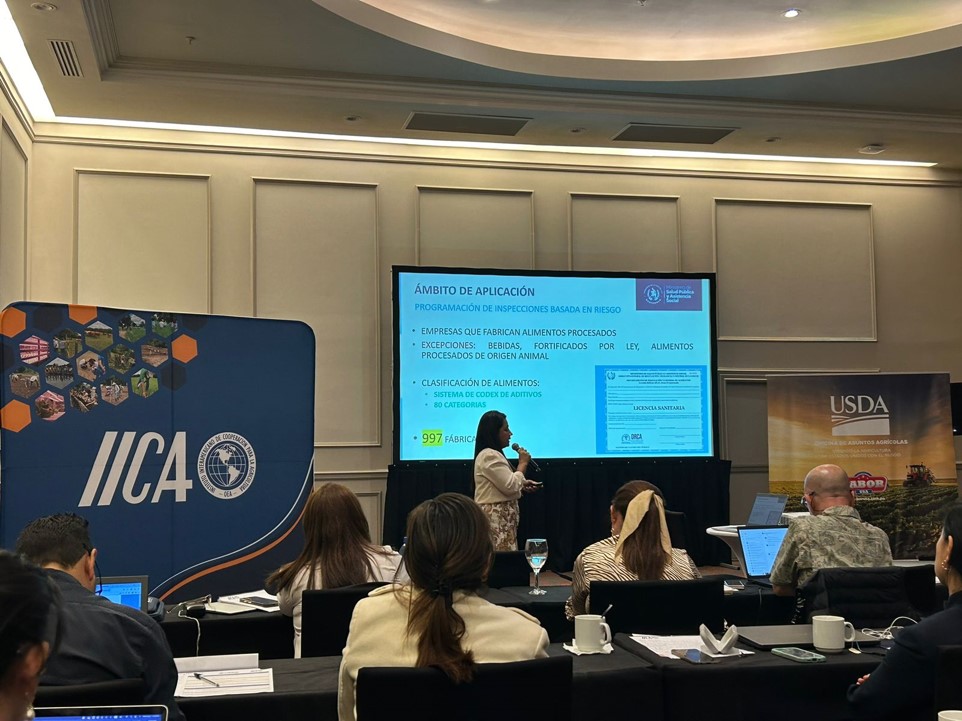A meeting was held to discuss processes aimed at improving food safety standards and facilitating trade in the region for the benefit of producers and consumers.

Panama City, 3 October 2024 (IICA). The biannual regional meeting of agricultural health and food safety experts for the second half of 2024 was held in Panama City. The discussions focused on the harmonization of technical regulations, the promotion of intra- and interregional trade, and the lowering of barriers to exports to the United States.
The event was organized under the Promotion of Agricultural Trade in Latin America and the Caribbean (PATLAC) project, which is funded by the Foreign Agricultural Service of the United States Department of Agriculture (USDA/FAS) and the United States Agency for International Development (USAID), with technical and logistical support from the Inter-American Institute for Cooperation on Agriculture (IICA).
More than 20 directors of food safety and agricultural specialists from Guatemala, Honduras, El Salvador, Costa Rica, Panama, the Dominican Republic and Ecuador took part in workshops and work sessions, focusing on the standardization of nomenclature, the principles of microbiology and styles of communication, among other topics.
At the meeting, eight health and safety regulatory institutions presented the progress they have made with the development and application of risk-based inspection models. These advances are the result of the ongoing technical assistance provided to the countries under the cooperation agreement.
The meeting highlighted the collaborative efforts of the participating countries, and promoted the creation of strategic partnerships to improve food safety at the regional level.
The team of experts involved in the event included Miguel Arvelo, IICA Representative in Panama; Erika Aparicio, IICA administrative assistant in Panama; Daniel Orellana and Sonia Allauca, USDA/FAS officials; Fernando Sampedro, an expert from the University of Minnesota; Alexandra Calle, an expert from Texas Tech University; Kristel Hernández, technical-administrative assistant of the IICA AHFS program; and Susana Miranda, technical specialist of the IICA AHFS program.
At the end of the event, work teams were set up and strategic partnerships created among agencies and organizations of the participating countries.
The regional meeting in Panama was one of a series of biannual meetings that will be held in different countries to advance the harmonization of technical regulations and strengthen collaboration among food safety agencies.
More information:
Institutional Communication Division.
comunicacion.institucional@iica.int











